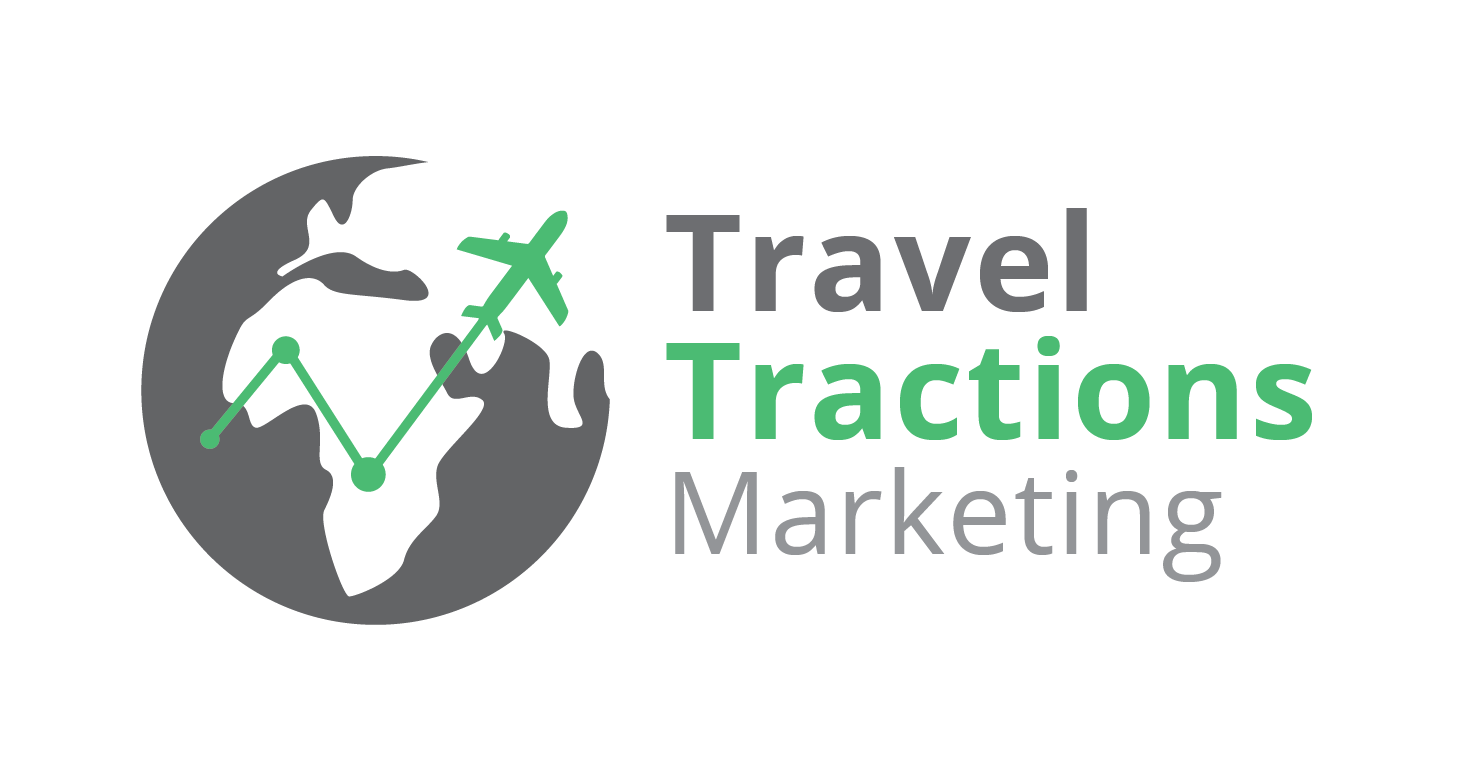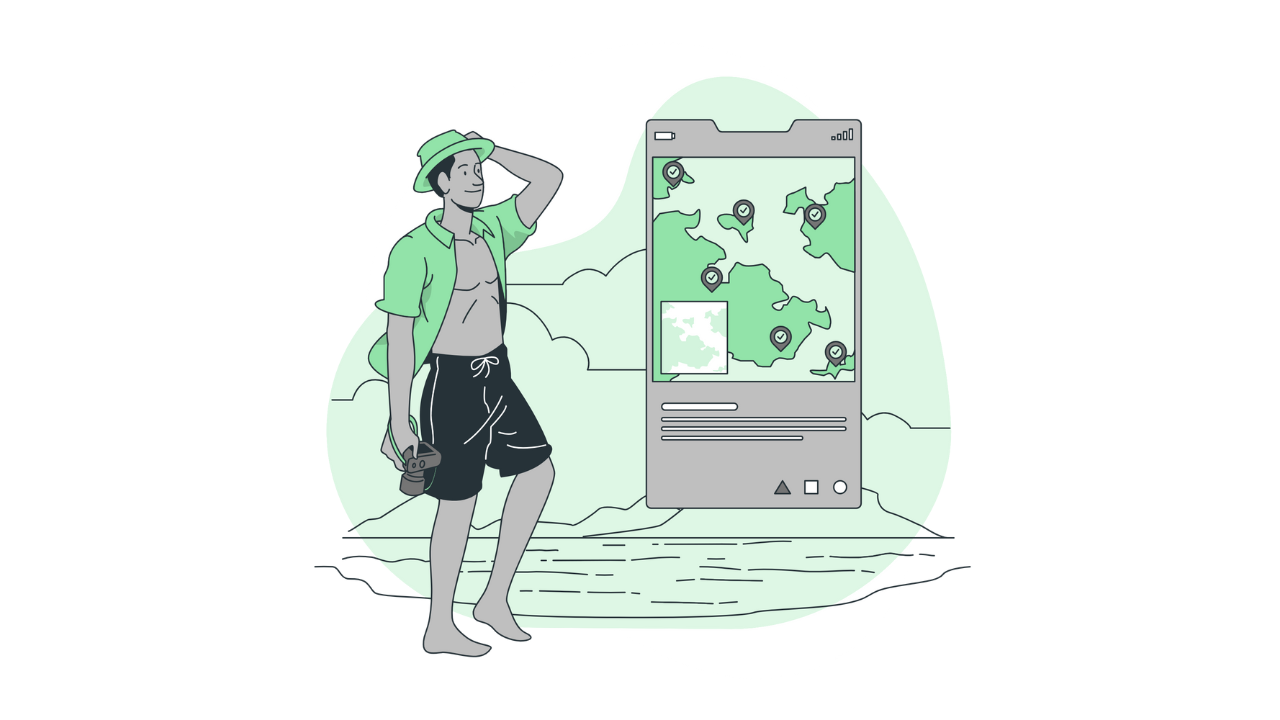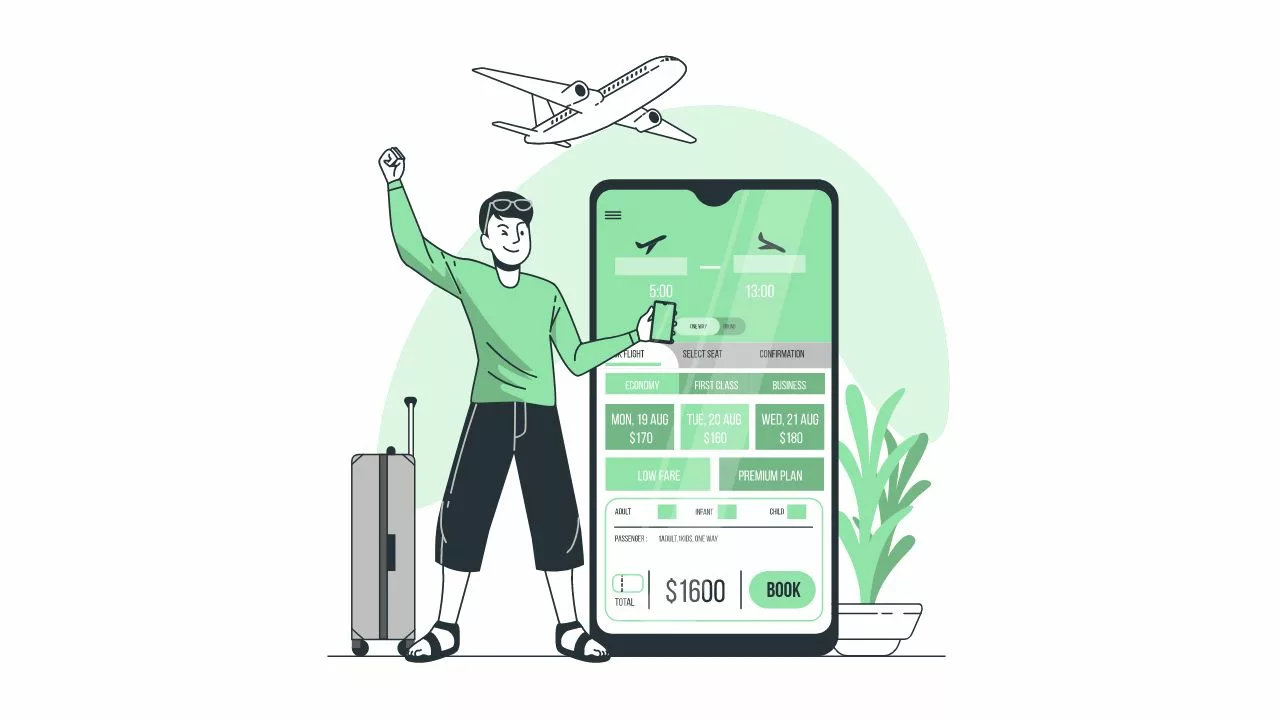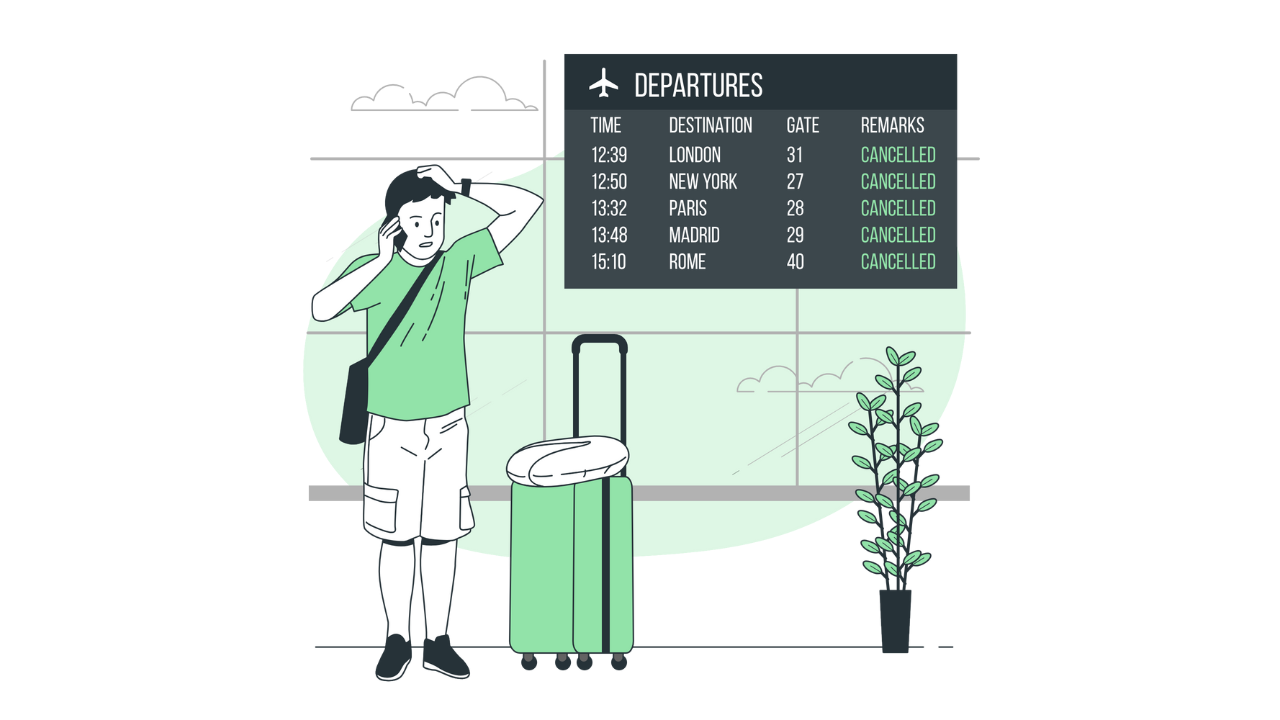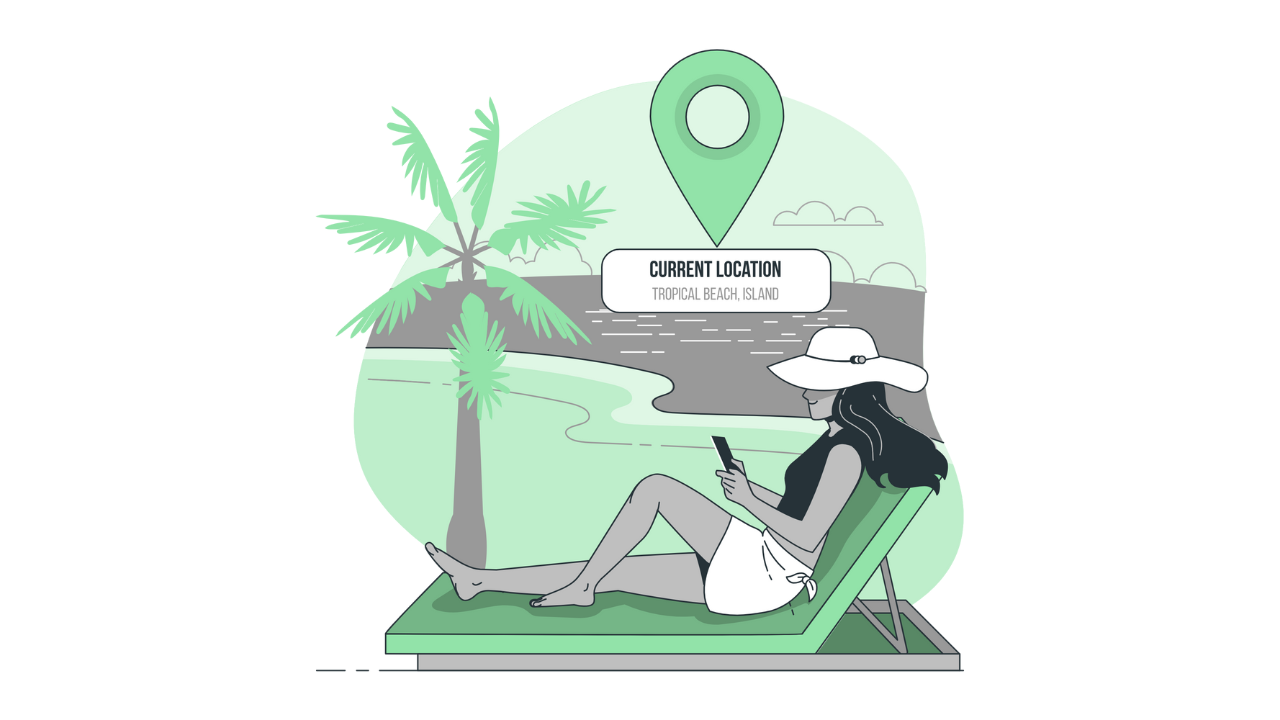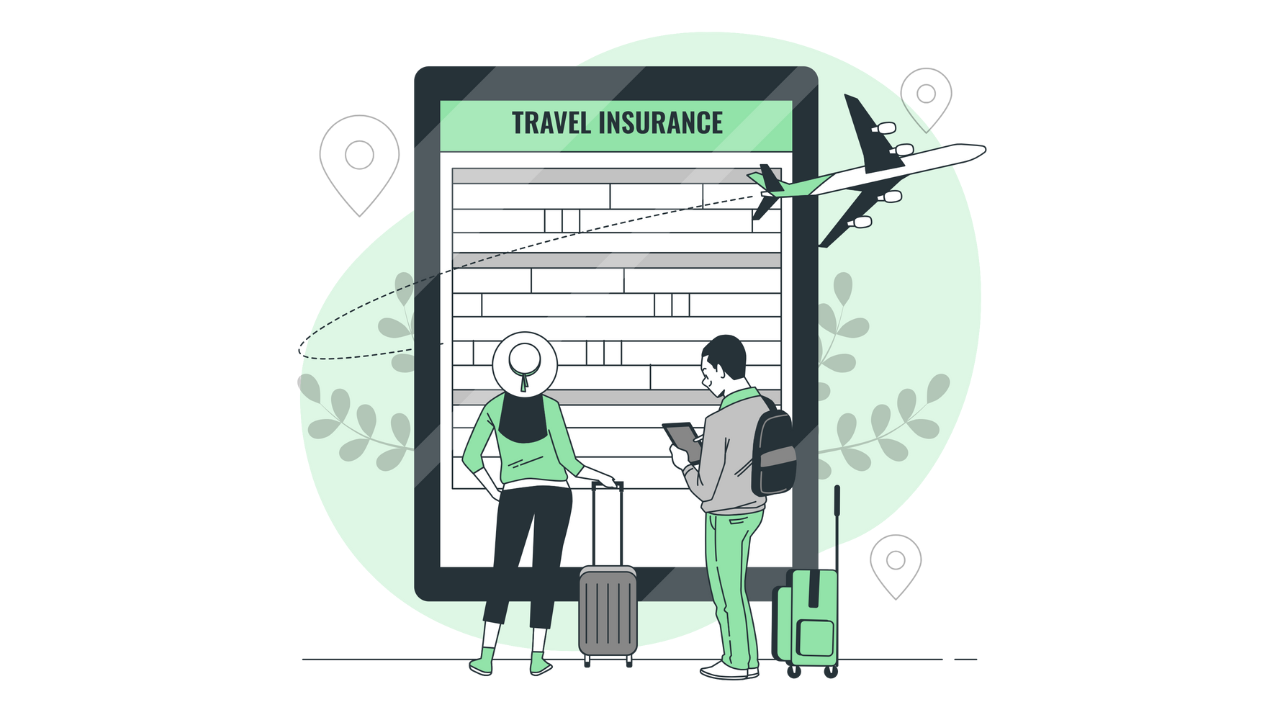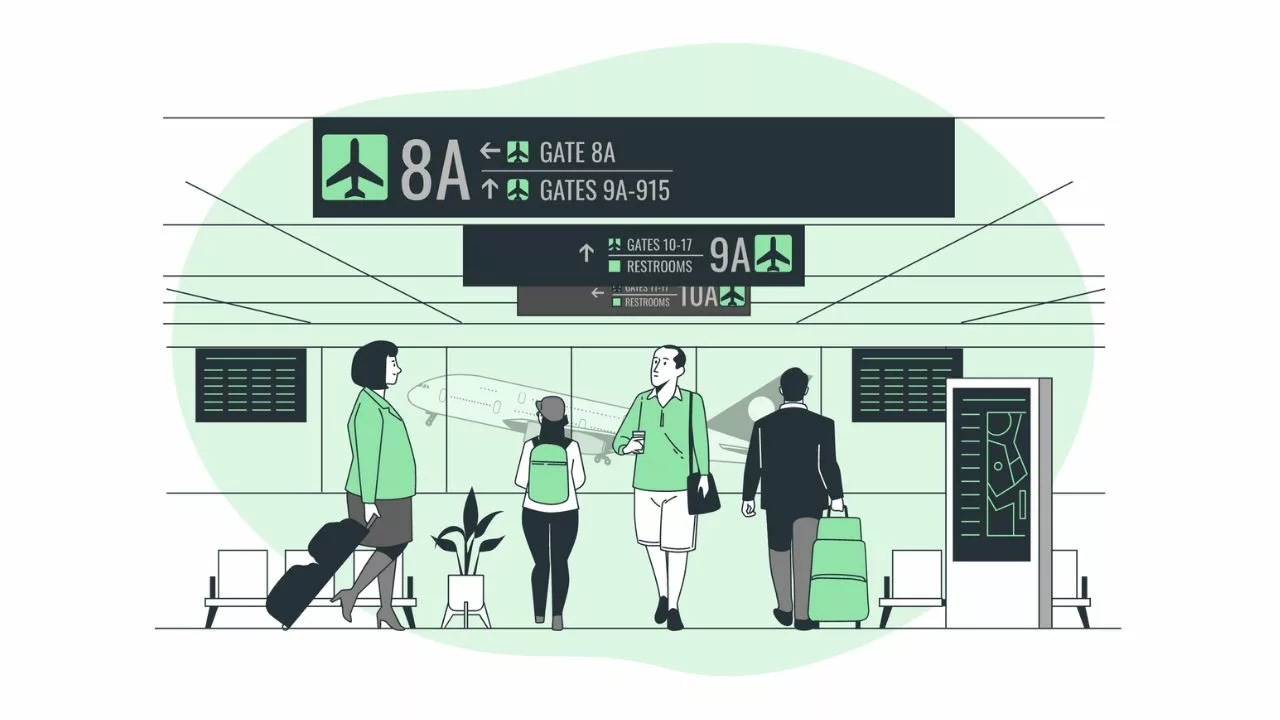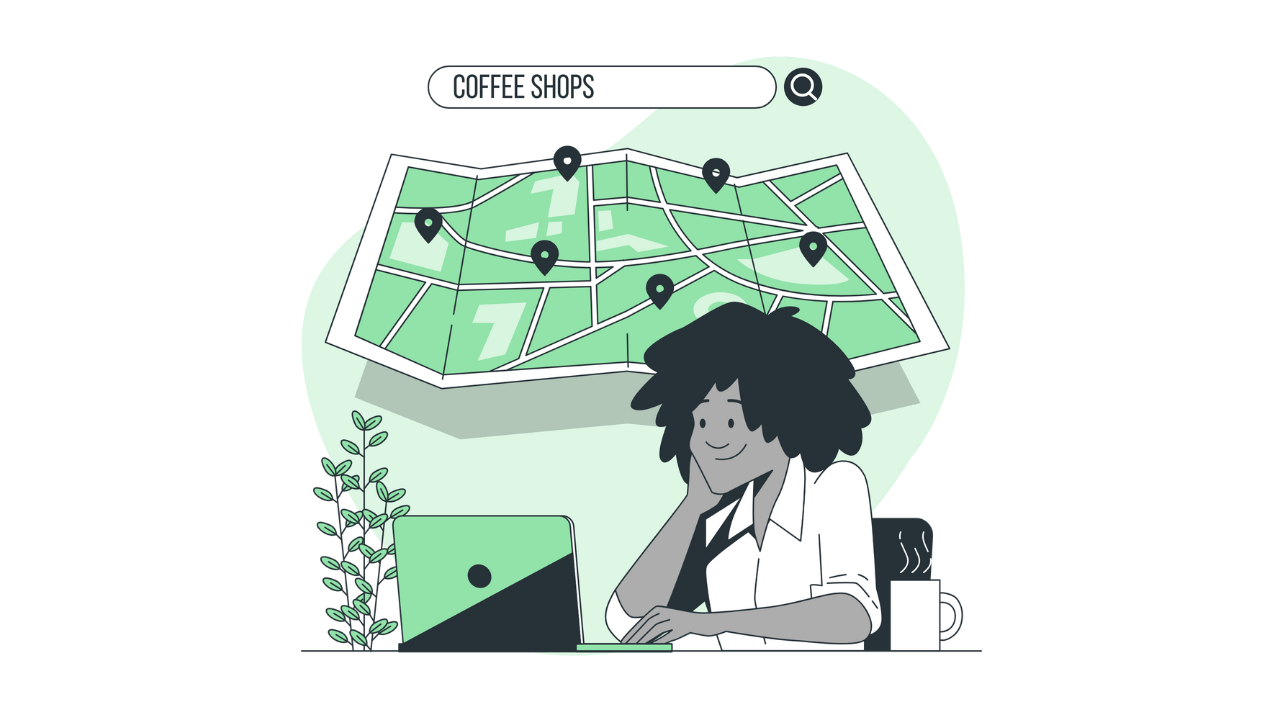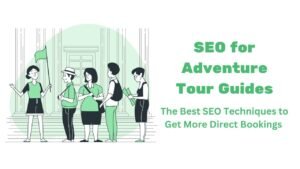
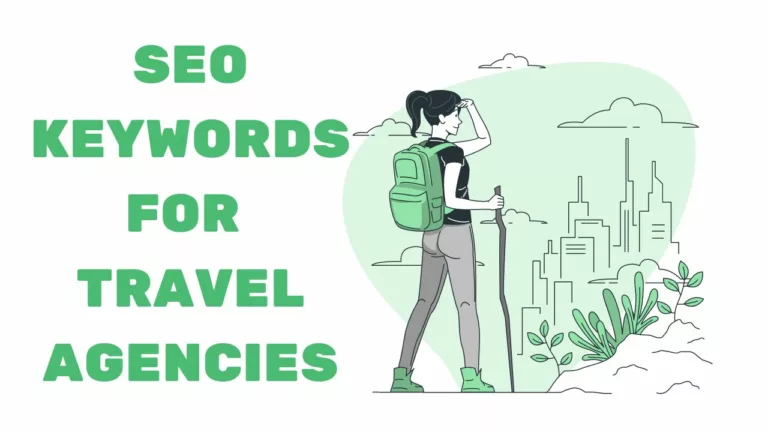
How to Find the Top SEO Keywords for Travel Agency Success
Do you have an online travel agency, but are not seeing as much traffic to your website as you’d like? We have some good news! A simple strategy implementation using the right keywords could see you rise to the top of the SERPs and bring in a significant amount of new enquiries.
Travel SEO doesn’t have to be complicated, especially when you start with a clear keyword strategy. This guide covers everything you need to know about SEO keywords for travel agency success. From finding your ideal keywords to implementing them effectively, it’s time to get stuck in!
What are Keywords for Travel Agencies?
Keywords are words or phrases that people generally type when searching online. Every website has keywords, from local businesses to large multinational websites. The distinction lies in the fact that travel keywords are specifically targeted at the travel industry niche.
Furthermore, while typical travel sites often target destination-focused keywords (e.g., “things to do in Bali”), travel agencies and marketers should prioritise commercial and transactional keywords that attract ready-to-book customers. We have a simple trick to help you get this right.
An ordinary travel keyword is a combination of a niche descriptor and a geographical modifier.
Niche Descriptor + Geographical Modifier = Travel Keyword
(e.g., “hiking trails in Peru” or “family resorts in Thailand”)
On the other hand, travel agency keywords are often more service-oriented and reflect buyer intent. They combine destination terms with action words or services. These keywords are more likely to attract individuals who are ready to make a decision, rather than just gather information.
Travel Agent Service/Action + Destination + Modifier = Travel Agency Keyword
(e.g., Affordable + Kenya + Safari Tours → “affordable Kenya safari tours”)
Top Tip: It’s still important that your travel agency ranks for more informational travel keywords such as “family resorts in Thailand”. This helps showcase your expertise to the reader and improves your topical authority for the destinations you offer.
However, this is not set in stone, as every user is unique. Each keyword phrase or search term will be distinct, at least to some extent. You may find search queries that aren’t geographically pinned down; these are called generic keywords.
They’re broad and highly competitive, and travellers tend to use them when searching for general travel information. This means they’re still early in the buying journey, and not yet at a point where they’re likely to make a purchase or booking.
This isn’t to say you shouldn’t target these keywords at all, though; you can use them to capture new leads at the Top of Funnel (ToFu), which focuses on brand awareness, rather than sales.
Some Examples of Generic Keywords
- Discounted tour packages
- Travel agents
- Local travel business
- Vacation packages
- Cheap flights
- Hotel booking
So how do you ensure that your travel agency lands at your ideal client’s fingertips? The answer lies in perfecting a winning combination of identifying the right keyword and snagging that first position on search engines. See the curated list of the top 20 keywords below to get started.
List Of The Best SEO Keywords for Your Travel Agency
| Keyword | Global Search Volume | Search Intent |
| luxury travel agency | 7000 | ● Informational / Commercial
● Looking for a travel agency that specialises in luxury travel |
| luxury vacations | 4600 | ● Informational / Commercial
● Searching for or ready to book a luxury vacation |
| luxury travel experiences | 3900 | ● Informational / Commercial
● Looking for or ready to book a luxury travel experience |
| luxury family holidays | 3600 | ● Informational / Commercial
● Looking for travel agencies that plan and book high-end family vacations |
| best guided hiking tours | 3600 | ● Informational / Commercial
● Looking for companies that organise and book guided hikes |
| luxury travel advisor | 3500 | ● Informational
● Seeking an expert who can plan and arrange personalised luxury trips |
| luxury travel companies | 3400 | ● Informational / Commercial
● Searching for businesses that specialise in organising high-end, bespoke travel experiences |
| affordable luxury travel | 3300 | ● Informational / Commercial
● Looking for travel agencies that offer premium travel experiences at competitive prices |
| what is luxury travel | 3100 | ● Informational
● Seeking to understand the meaning and features of luxury travel experiences |
| luxury train travel | 3000 | ● Informational / Commercial
● Looking for premium train travel packages or itineraries |
| luxury travel agent | 2800 | ● Informational / Commercial
● Looking for a professional who plans and books luxury travel experiences |
| luxury villa holidays | 2500 | ● Informational / Commercial
● Searching for agencies that offer high-end villa rentals for luxury vacations |
| luxury all inclusive holidays | 2400 | ● Informational / Commercial
● Looking for travel agencies offering premium all-inclusive holiday packages |
| luxury coastal vacations | 2400 | ● Informational / Commercial
● Searching for agencies that specialise in upscale beach and coastal holiday experiences |
| private jet travel | 2100 | ● Informational / Commercial
● Looking for agencies that arrange private jet charters or luxury air travel services |
| luxury travel packages | 2100 | ● Informational / Commercial
● Searching for travel agencies offering curated, high-end vacation packages |
| luxury travel agencies | 1900 | ● Informational / Commercial
● Looking for travel agencies that specialise in luxury and bespoke travel experiences |
| luxury adventure travel | 1900 | ● Informational / Commercial
● Searching for agencies that offer high-end adventure travel experiences combining luxury and exploration |
| luxury family vacations | 1600 | ● Informational / Commercial
● Searching for travel agencies that specialise in upscale family vacation packages |
| guided tours of italy | 1500 | ● Informational / Commercial
● Looking for professionals who specialise in planning tours in Italy |
The Importance of Keywords for Your Travel Agency Website
If you’ve been around long enough, you’ll know that SEO for travel agencies is a highly competitive industry.
Since there’s been a huge shift towards online marketing, optimising your content to make an impression on search engines is more important than ever. This is thanks to travellers’ newfound habit of searching for information online long before they make a final decision.
Keywords can be seen as the juice that a search engine operates on. And when it comes to increased performance and higher conversions, it’s all about ranking.
Now, for your travel agency website to rank high on Google SERPs, for example, you’ll need to use the best keywords for your niche. Combining that with your overarching goal of being in Google’s first position (or as close to it as possible) easily translates into more organic traffic and increased enquiries.
This is something all of the top online travel agencies have in common.
They aim to get as much traffic to their website as possible. Put together a powerful keyword strategy with an effective PPC campaign and proactive SEO strategy, and these agencies convert a massive chunk of this relevant traffic into revenue.
While a beautiful travel agency website design and smooth UX design are important, gaining traffic through high search volume keywords is essential to growing your business. When you use the best keywords, your agency website and campaigns get seen by your ideal customer and audience.
As magical as all this sounds, where do you start your journey to find the best SEO keywords related to your travel agency?
Understanding the Finer Details of Keyword Research
Your first practical step to effectively use keywords for your tour agency is to conduct keyword research. This process puts you in the shoes of your target audience, imagining how they would search for your specific product or service.
When it comes to the travel industry and travel agencies in particular, you could discover that “Burma vacation packages” are far more popular than “Myanmar vacation packages” or vice versa. Put simply, these two phrases might be a matter of semantics, but an expert researcher knows that the difference between them can make or break an SEO strategy.
You may also find out that the search volume for local hostels is far higher than, let’s say, the search volume for boutique hotels in your area. Use this information to experiment with updating elements like your title tags or tour descriptions on your website. This also has the potential to give you more content ideas.
Tip 1: Don’t Forget About Long-Tail Keywords
An easy trap to fall into when you go about researching keywords is overlooking long-tail keywords. There’s nothing explicitly wrong with sticking to a small set of terms or phrases to kickstart your research, but these shouldn’t be your only focus.
Researching keywords is about identifying all the potential phrases (or topics) your audience might search for. You can then use this to map out your site architecture, including what pages to cover, even down to the finer things like specific text to include.
While it’s almost instinctive to be drawn to phrases that have the highest organic search volume, as these are what people search for most, it’s not as simple as that.
Of course, you want pages on your travel company website to target the most searched-for terms. However, these phrases are often highly competitive. This will make ranking for them, especially close to the first position, quite challenging.
That’s where long-tail keywords come into play. Recognising these long-tail phrases is extremely useful if you’re a local tour operator with a small team or have a new website.
But What Is a Long-Tail Keyword?
Long-tail keywords are longer, more specific search phrases that usually consist of three or more words. Unlike broad, shorter keywords like “travel agency” or “luxury vacations”, long-tail keywords target a narrower audience with a clearer intent, such as “family-friendly vacations in Cape Town” or “affordable guided tours in Santorini.”
Because they’re more specific, these keywords typically have lower search volume but also face less competition, making it easier for websites, especially newer or smaller ones, to rank for them in search engine results.
Google has even gone so far as to release data results that show that roughly 15% of the phrases they see daily are entirely new. This means long-tail keyword usage is still growing, even in the AI age, and if you pinpoint those keywords, you set yourself up for success.
Tip 2: Consider Topics vs Phrases
If you’re wondering how to target long-tail keywords effectively, the answer is actually a lot simpler than you’d think:
The first important step is to identify your niche, or unique selling proposition (USP). For example, do you offer custom-made itineraries or do you target luxury travellers? This way, you can identify more targeted keyword sets that will result in more meaningful traffic to your site
Let’s say you’re starting a travel agency specialising in travel destinations for each month of the year. Your initial search results show that there’s a massive search volume leaning towards “where to go in” phrases. With some digging, you’ll soon find related keywords that expand your first chosen topic and open up several other avenues to head down.
For example:
- “Where to go in April” – 2,500 global monthly searches
- “Best places to visit in April” – 9,200 global monthly searches
- “Where to go on vacation in April” – 100 monthly global searches
- “April vacation destinations” – 300 global monthly searches
The minute you begin to delve into long-tail keywords, you’ll find a gift that keeps on giving. As a travel agency, your job is to keep these keywords closely related to your niche and then build out a list of topics that will feed organic traffic to your site while you fill potential content gaps.
Tip 3: Avoid Keyword Stuffing
When you’re choosing keywords for your travel agency, it’s easy to fall into the trap of keyword stuffing. This is when a website repeats the same phrase over and over in a bid to rank higher. “Best travel agency in London” pops up in every second sentence, and suddenly the content reads more like a bot than a human. That’s not what Google, or your customers, want.
Think of it this way: if someone lands on your site and feels like they’re reading a sales pitch written for a machine, they’ll bounce. You want your content to sound natural and helpful, like you’re talking to a real person. So instead of hammering one phrase repeatedly, focus on using related terms, as we touched on in the previous section, as well as natural language.
Let’s say you specialise in Italy tours. Instead of repeating “Italy travel agency” 12 times, try working in variations like “custom Italy itineraries,” “guided tours of Rome,” or “planning your dream Italian holiday.” It keeps the content fresh and gives more context about what you offer.
Also remember: search engines are smarter now. They understand meaning, not just exact matches. So write for humans first. Think about the questions your customers ask, like “What’s the best time to visit Tuscany?” or “Do you offer small group tours in Amalfi?”, and build your content around answering these questions.
Use your keywords strategically: in titles, headers, the meta description, and naturally throughout the body. But never at the cost of readability. If it sounds awkward, you’ve likely overdone it.
Bottom line? Don’t write for algorithms, write for people. A well-crafted, helpful page with thoughtful keyword use will consistently outperform a robotic, keyword-stuffed one.
What to Consider When Choosing Travel Agency Keywords
Once you have your keyword list completed, the next step in identifying the best keywords for your unique online travel agency is to translate the data you see into actionable topics. While there is an entire range of varying metrics to consider in determining the most relevant keywords for your travel website, these stand out above the rest.
- Search Volume
- Keyword Difficulty
- Targeted Traffic
- Relevance/Intent
1. Search Volume
Search volume refers to the total number of times a particular keyword is entered into a search engine or used in a search query. This metric is determined on a monthly basis, giving you the exact amount for which a specific term is searched.
The higher the search volume for a specific result, the more likely it is to be a relevant keyword for your travel company. Why? Well, with a larger volume, the potential to generate website visitors for that query increases.
2. Keyword Difficulty
When you attempt to rank for a specific keyword, those search results with high organic traffic and commercial intent often come tied to a more challenging difficulty. Keyword difficulty refers to the ease of competing for a first-page ranking.
This means your travel marketing strategy and, by extension, content marketing plan needs to take into account how competitive a particular keyword is. What makes this an even more critical consideration is that if authoritative websites highly contest your chosen keyword, your chances of ranking for that term could drop even more.
3. Targeted Traffic
If you think about relevant traffic for your travel company website, consider targeted traffic the golden standard. These search results provide the user with the exact information they need.
The moment prospective customers start searching for a term, if you can deliver and satisfy their intent, you’ll generate targeted traffic to your website. The more concise and earlier you answer the readers’ questions, the higher your user satisfaction will be, and in turn, the better your odds of turning visitors into clients.
4. Relevance & Intent
Even if a keyword has high search volume and low competition, it won’t help your travel agency if it doesn’t align with your services. Relevance is all about matching user intent. This means delivering precisely what the person typing that keyword into Google actually wants.
You should also look beyond just the keywords themselves. Use tools like Google’s “People Also Ask” section to discover real-time questions people are typing in. This is gold for content ideas; each question is a window into your audience’s needs. Similarly, FAQs are a great place to incorporate long-tail keywords naturally.
When you build content that directly answers these types of questions, you serve your potential customers better. Plus, you also give search engines more context to rank your site higher for related queries. That’s how relevance helps you win in both traffic and conversions.
Travel Keyword Research Tools
When you’re on the hunt for a travel keywords list to match your travel agency website, there is a selection of SEO tools you can use. You can choose from several paid tools or a select few free tools that will make finding current and appropriate keyword phrases a lot easier.
Google Search Box
Kicking things off with what is probably one of the most valuable but easily overlooked free tools out there, Google Search Box does a lot when it comes to finding the best keywords. The box on the search engine’s homepage offers quite a lot of insight for travel SEO keyword ideas.
It’s as simple as starting a search phrase, and Google will take over and complete your search phrase, presenting related suggestions. These are some of the most frequently searched-for keywords that contain the same letters and terms you’ve already begun to search for.
The trick when you’re using the search box is to think of relevant and related terms that your travel agency would need to rank for. After you’ve found a select few, evaluate their commercial intent and potential to drive traffic to your website.
Google Search Console
Another fantastic free tool you should be using when plotting out your keyword strategy is Google Search Console (GSC).
As you launch your travel website, linking it to GSC is essential if you want to stay on track with your overall site health and ranking performance. In its “Search Results” report, you’ll find a list of queries for which your website is currently ranking.
Once you have this report, you can choose the most valuable keywords taking into consideration their commercial intent, number of impressions, and clicks. With all of this data at your fingertips, it becomes easy to optimise your site for these popular keywords and identify content gaps for capturing new leads.
Google Keyword Planner
Although Google Keyword Planner is a feature contained within Google Ads aimed at helping digital marketing strategists find suggestions for paid campaigns, you can also use it for SEO purposes.
For you to use Keyword Planner, you’ll need a Google Ads account. Once you’ve created yours, you can dive directly into the tool and its features. When considering keywords, you’ll mostly use the “Discover new Keywords” tool.
After adding related keywords in the search box, define your region and language, and you’ll get your results. One of Keyword Planner’s most significant advantages is the keyword suggestions it gives you, as well as the search volume and competition level (difficulty).
Paid Keyword Search Tools
When it comes to fully comprehensive tools to find the best keywords for your travel agency website, there are a few big-name players. These are the best paid-for keyword tools you should consider for your travel company:
- Ahrefs: This is one of the most comprehensive tools that helps you decide on the best keywords for your brand. Their “Keywords Explorer” tool does the trick when you want to find the top-searched travel keywords, while “Site Explorer” aids with analysing a competing page for their keywords.
- SEMrush: Using SEMrush, you get access to complete reports that can make finding high-volume keywords quick and straightforward. You begin by deciding on “seed keywords”, which are basically your general keywords. Once you’ve done that, you’ll get a list of related keywords, which you can then filter by volume, country, difficulty, and even search trends.
- Keysearch: Another standout tool you can use to find the right keywords for your travel agency website is Keysearch. Offering a free trial as well as a paid version, you’ll get access to metrics ranging from user search trends to search volume and difficulty. Beyond that, Keysearch also provides some more profound insights, such as giving you an estimated range for potential traffic from a keyword.
- Ubersuggest and AnswerThePublic: These two tools are excellent for uncovering what real people are searching for, especially useful when you’re trying to tap into niche travel topics. Ubersuggest gives you keyword suggestions, volume, and difficulty scores, while AnswerThePublic visualises search queries in a question-based format.
Learn More: To help you learn about keywords and other SEO skills for your tourism website, we’ve put together a Tourism SEO course.
Improving Your Ranking for Top Travel Keywords
Finally, it always helps to have a little jumping-off point when you start searching for travel keywords. Depending on your travel business and its specific business model, there will undoubtedly be certain keywords that work better than others.
Take into consideration what kind of business you’re operating, for example:
- Destination Marketing Organisations: These types of travel businesses will ideally attract users who are looking for a specific destination to match their vacation plans. This is where terms such as “New York travel” or “New York vacation” will deliver the correct travel intent and, in turn, appropriate traffic.
- Travel Agencies: If you’re running a travel agency, your focus will be more on selling travel packages or custom vacations. If that’s the case, as a travel agent, you’ll aim for keywords such as “New York travel package” or “New York custom vacations”.
- Tour Operators: As a tour operator, you’re going to focus more heavily on the location + tour pairing. For example, this means your ideal keywords will revolve around “Things to do in New York” or “New York tours”. On the other hand, if you’re a tour operator focusing on adventure tours, being as specific as possible is the way to go. You’d then aim to use keywords like “parasailing in Phuket”.
Keeping the above in mind, remember that writing content with targeted keywords in mind is one of the best ways to rise in search engine results pages (SERPs). Just make sure the keyword you target aligns with the intent of your landing pages, blogs, and social media content.
Now, let’s break down some general keywords you can use to begin with.
High Volume Keywords for Travel Agents
High-volume keywords are a great place to start, typically related to travel in general. Because these keywords are extremely sought after, it will often be difficult for a new website to compete. That said, they’re a great place to start.
Consider using the following:
- Travel agents near me – 25,000 global monthly searches
- Travel agencies near me – 7,400 global monthly searches
- Tour operators in – 10 global monthly searches
- Online travel agencies – 1,900 global monthly searches
Country-Based Travel Keywords
Another straightforward strategy is to look for country-based travel keywords. Focus your search on individual countries and expand into a country’s capital city. When you do this, you allow users to find the needed information earlier in their journey on your website.
These are a few good examples:
- Travel to Europe
- United States travel ideas
- Spain tour operators
- Grand Canyon tour guide
- France travel insurance
- Thailand travel agent
General Keywords for Travel Services
Next up are some general keywords that users might use to find your specific travel business online. Identifying the keyword that best aligns with your brand and offerings will ensure you target the right audiences earlier in their research journey:
- Travel agents
- Travel companies
- Tour operator
- Top tour companies
- Luxury travel companies
- Travel consultant near me
Popular Keywords for Travel Agencies
In contrast to the above, there are a number of popular tour and trip varieties that make up some unique travel keywords you can use for your travel agency. These are usually very highly searched:
- Trip packages
- Tour company packages
- Honeymoon tours
- Adventure travel
- International tour packages
- Family tour options
Top Tip: Once you’ve identified some general target keywords, look to filter your keyword list using niche-specific terms that are still highly searched and align with your brand. Some popular terms include “luxury”, “guided”, “custom”, “tailored”, “private”, and “bespoke”.
Now You Know About SEO Keywords for Your Travel Agency, What Comes Next?
Knowing how to find the ideal keywords for your travel agency is one thing; using them effectively is another entirely. Here’s a quick look at some key factors your travel agency needs to consider when using SEO keywords in your content strategy.
Incorporating High Search Volume Keywords
Once you’ve got your selection of keywords that fit your unique selling point, the first step is to use your high search volume keywords where they matter most. While this entails adding these highly searched keywords into essential elements on your website, there’s more to it.
Let’s say you’ve found the following while doing keyword research:
- The keyword phrase “Best travel agency” has 4,900 global monthly searches
- Another keyword phrase, “Travel agency in South Africa”, only has 100 global monthly searches
These two phrases both have search volumes, indicating that your targeted audience is looking for brands that align with these queries. Either they’re looking for the best travel agency or scouting for any travel agency in South Africa.
The ideal approach logically follows. Combining these two keyword phrases and incorporating them into your website copy logically is the magical recipe for success.
Aligning Keywords With User Intent
Understanding user intent is just as crucial as finding the right keyword. User intent refers to what a person actually wants when they type a query into Google: Are they researching, comparing, or ready to book?
For example, someone searching “luxury safari tours in Tanzania” has a much stronger commercial or transactional intent than someone looking up “best countries for wildlife.”
To make the most of your SEO strategy, match each keyword with the right type of content. Informational keywords are perfect for blog posts and travel guides, while transactional ones should live on your booking or service pages.
This ensures that you’re not only attracting visitors but also converting them at the right time in their research journey. When your keyword strategy aligns with intent, you’ll create content that’s useful, relevant, and more likely to turn browsers into buyers.
It’s also something Google rewards with better rankings and your audience rewards with trust.
Seasonality and Travel Keywords
In travel marketing, seasonality is an essential aspect to consider. Many travel searches are tied to specific times of year; think “summer holidays in Greece” or “December ski trips in Japan.” If you’re not aligning your content to match when people are actually searching, you’re leaving traffic (and bookings) on the table.
Use tools like Google Trends or your keyword research platform like GSC to identify peak search times for your top keywords. Then, plan your content calendar around those spikes. For example, publish content about “spring break in Mexico” a few months ahead of March to catch early planners.
You can also update existing content to reflect seasonal demand. Refresh old blog posts or landing pages with current dates, trending destinations, or holiday-specific offers. This keeps your site relevant and ready for every booking season that rolls around.
Long-form Content Using SEO Keywords for Travel Agencies
Okay, you’ve got your content strategy off the ground, and now you want to make the most of every high-performing keyword. This is where you’ll need to determine which of your keywords you can use as a support structure for long-form content.
A careful sprinkling of moderate to high search volume keywords throughout a piece of content is how you ensure targeted traffic leads to your website.
FAQs About The Best Travel SEO Keywords
Here are a few quick answers to the most common questions we get about the best keywords for travel websites.
How Do I Know Which Keywords Are Best for My Travel Agency?
Focus on keywords with high search volume, low to moderate competition, and strong relevance to your services. Use tools like Ahrefs, SEMrush, or Keysearch to guide you.
Should I Target Broad or Niche Travel Keywords?
A mix works best. Broad keywords offer a good base for your website, but they’re usually not targeted. On the other hand, niche keywords attract more relevant and qualified leads that are likely to convert into sales.
Where Should I Use Travel-Related Keywords on My Website?
Keywords can be used anywhere. But try to incorporate them into titles, meta descriptions, headers, URLs, image alt text, and naturally within your content for maximum value.
Final Thoughts on SEO Keywords for Travel Agencies
Travel keywords for SEO don’t need to be more of a mission than absolutely necessary, and once you’ve got a good grip on the basics, there’s little else you need to manage.
Obviously, the best keywords are those that stick to your content marketing and business goals and ones that easily help you fill content gaps. This makes thorough keyword research an integral part of your marketing strategy, but it doesn’t simply end there.
Once you have your keywords, you’ll need high-quality content to match.

